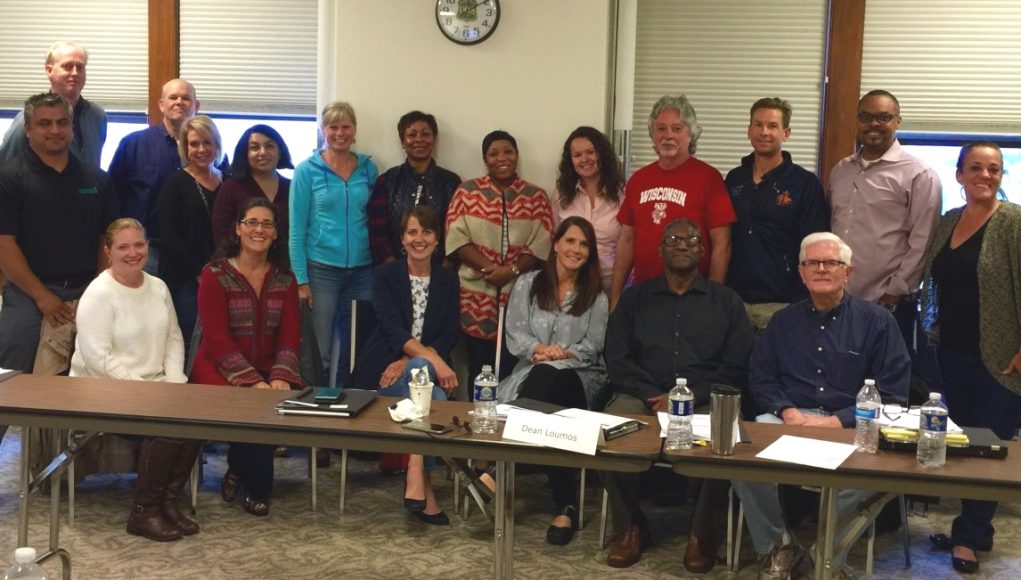With two new board members taking office next month, I’ve found myself thinking a lot about the school board, its role, and its potential as a decision-making body.
It may not be a surprise that a good portion of my job involves working directly with our school board. We have an almost weekly public meeting, which means that I am always in the process of debriefing the last meeting and preparing for the next one. I meet monthly with board members who want to check in on an individual basis. In those meetings, I preview the upcoming regular board meeting and board calendar, garner their feedback and advice, and discuss constituent concerns. We hold three Saturday retreats a year to monitor district progress. And of course, all throughout the year our team tries our best to respond to board member requests and questions in a timely manner.
The Board of Education plays a critical role not only in our district, but in our community as a whole. In collaboration with our senior team, the school board establishes the vision, goals and roadmap for our efforts to raise achievement and narrow and close achievement gaps. That includes identifying both universal and targeted approaches that support every child in the attainment of the knowledge, skills and abilities they need to graduate ready for college, career and community. The board asks questions, provides guidance, and pushes our team to make sure we are making the impact our community expects us to make. They are the final decision makers on policy and budget. And the board serves as the final arbiter on some of the most difficult decisions that involve individual students or staff members.
In the four years I’ve been in Madison, I’ve learned some key lessons about what it means to have a high functioning school board and I thought I’d share some of those with you.
#1 We keep our vision, goals and priorities for student learning at the center.
The MMSD board has worked hard to keep its vision, goals and priorities for raising student achievement and narrowing gaps front and center. What we discuss at board meetings is directly linked to the efforts outlined in our strategic framework, which is our district’s plan of improvement. We map out these topics annually each August –topics like Special Education, Advanced Learning, alternative education, and services for English Language Learners– and while we may move things around to ensure the timing is right, we don’t stray much from what we set out to do. I think this kind of discipline and focus is exemplary for a school board.
#2 We actively work on strengthening our racial equity lens.
At our board retreats, which include participation of the senior leadership team, we’ve taken time to talk very explicitly about issues of racial equity. We know that race is one of the most powerful predictors of how one will fare in society. We have come to understand how one is situated to opportunity matters, which is why the selection of both universal and targeted strategies are so important. In fact, the school board is in the midst of re-writing its Equity Policy to ensure that they (and future boards) remain committed to making critical policy and budget decisions through an equity lens with explicit attention to race.
#3 We work as one team.
We, meaning management and board, try not to get into an adversarial position with one another. The board’s job is to challenge our thinking and hold us accountable, but we also know we need to function as one large leadership team striving for the same accelerated outcomes for our students. Doing so has required that we actually get to know one another better. When we understand what motivates one another as individuals, when we have some insight into the lens through which we each see the world, it helps us understand one another more. We’ve learned that more insight and perspective always produces better decision-making.
#4 We recognize that we play important, but different, functions.
While we try to function as one team, we know we perform discreet functions. The board’s role in a nutshell is to engage with constituents and set the overall direction of the district by defining policy, by approving the budget and by evaluating me. The management team’s role in a nutshell is to carry out that policy and manage the daily function of the school district to achieve our goals. We try hard to respect one another’s important roles and when something falls into a gray area, we work together to find our way through it.
#5 We all serve the community.
But the most important insight of all is that we are all temporary. Every board member’s tenure eventually ends. Every superintendent’s tenure eventually ends. The community remains. Therefore, there is probably nothing more important than our joint efforts to listen to, learn from, and serve the Madison community. And because some members of our community are situated in a way that makes it more difficult for them to guide us, we need to intentionally seek out their perspectives.
In closing, I’ve heard people refer to the position of school board member as a “thankless job.” Well, I want to take this opportunity to say how thankful I am for all that they do. I certainly couldn’t do my job well without them. I have enormous gratitude for every board member that has served our community past and present. If you haven’t done so lately, thank an MMSD school board member! And remember to vote this April.




























